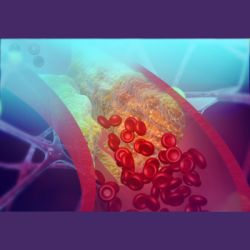Philips has initiated a German public-private partnership that aims to advance the development of whole-body Magnetic Particle Imaging (MPI) systems and preclinical hybrid systems that combine MPI with Magnetic Resonance Imaging (MRI). The German Federal Ministry of Education and Research has made a commitment to provide EUR 10.6 million funding to the consortium partners. The target size of the consortium budget, comprising contributions from the German government and the consortium's public/private partners, is EUR 20.3 million.
MPI, which was invented by scientists at Philips, relies on the magnetic properties of iron-oxide nanoparticles (the so-called tracer) that are injected into the bloodstream. An MPI system spatially and quantitatively detects these iron-oxide nanoparticles in order to produce three-dimensional images of physiological processes. The technology has already proved capable of capturing accurate real-time 3D-images of blood flow and heart motion in mice.
"As part of our Open Innovation approach, Philips has initiated the Magnetic Particle Imaging Technology - MAPIT - consortium to accelerate the translation of this innovative new imaging concept into clinical practice," says Michael Kuhn, Vice President Technology Strategy at Philips Healthcare. "Realizing the full potential of MPI to help in elucidating the processes associated with disease requires an integrated approach and a collaborative effort. I am convinced that the multidisciplinary MAPIT consortium is well positioned to advance MPI development in the areas of instrumentation, tracers, and application research."
Two principal application areas will be explored by the consortium: functional cardiovascular measurements (such as myocardial perfusion) and image-guidance of cardiovascular interventions (using interventional devices optimized for MPI guidance).
The results achieved at the Philips Research Laboratories in Hamburg (Germany) in the preceding MAGIC (Magnetic Particle Imaging for Cardiovascular Applications) research consortium contributed significantly to the development of MPI. The MAGIC project, which was also funded by the German Federal Ministry of Education and Research, has already resulted in an agreement between Philips and Bruker Biospin regarding the commercialisation of MPI scanners for the preclinical market.























